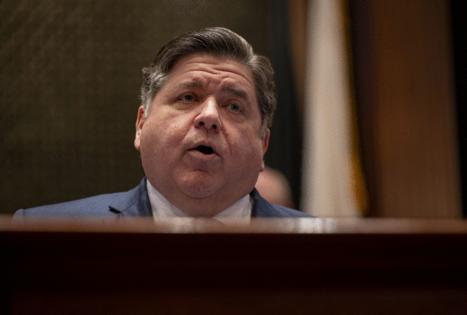Change to immigrant health care programs in Illinois will cause up to 6,000 to lose benefits
Published in Health & Fitness
SPRINGFIELD, Ill. — Thousands of non-U.S. citizens living in Illinois will no longer receive state-funded health care benefits as Gov. J.B. Pritzker’s administration looks for ways to cut the costs of two programs that came close to derailing state budget talks last year.
The Illinois Department of Healthcare and Family Services projects that as many as 6,000 people will lose coverage by next month when the state stops offering the programs’ benefits to those who have green cards but have not completed a five-year waiting period in the U.S.
Individuals in that category will no longer be eligible for the benefits provided through two programs, Health Benefits of Immigrant Adults and Health Benefits for Immigrant Seniors, by May 1. The affected individuals would then have to reapply for coverage through the federal Affordable Care Act Health Insurance Marketplace, which provides subsidies to noncitizens who are living in the country legally, the department said.
“It is important to note that all of the enrollee groups identified for changes … have alternative coverage options,” HFS spokesperson Jamie Munks said in an email. “These individuals will qualify for Medicaid coverage if they meet the eligibility requirements once they have been in the country for five years. We understand this creates turbulence for these individuals in their medical coverage and will do everything we can to help make the transition as smooth as possible.”
Munks said HFS is working with the state’s Department of Insurance to ensure that so-called navigators can assist these recipients with enrolling in a new plan.
The state budgeted $550 million for the programs last year, and Pritzker is proposing $440 million for them during the fiscal year that begins July 1. During a meeting before the Joint Committee on Administrative Rules on Tuesday, Healthcare and Family Services chief of staff Dana Kelly said removing the designated group recipients from the two programs would save a little over $13 million.
“We will be notifying them in the next week of that change and they will be made eligible for a special enrollment period on the Health Insurance Marketplace,” she said.
State Rep. Norma Hernandez, a Democrat from Melrose Park, criticized the changes as a “short-term cost-saving measure, not a long term” solution, and raised concerns about whether the navigators will suffice to help thousands of people through a complicated enrollment process that could be complicated by language barriers with only about a month and a half left before their state-funded health care expires.
“Even for me, and I have an education, I have a health care background, a master’s, it’s hard for me to navigate and understand copays, deductibles, all of that stuff,” Hernandez said. “I actually have a decent way of living, right? And then there’s folks that make less than $30K a year, less than $20K a year, and are now going to have to figure out how to pay for health care.”
In addition to proposing $440 million from the state’s general revenue fund for the programs in the coming year, Pritzker also proposed that an additional outlay of nearly $200 million could be allocated toward the two programs through other revenue streams. More than half of that would come from a federal match to emergency services funding.
...continued
©2024 Chicago Tribune. Visit chicagotribune.com. Distributed by Tribune Content Agency, LLC.







Comments